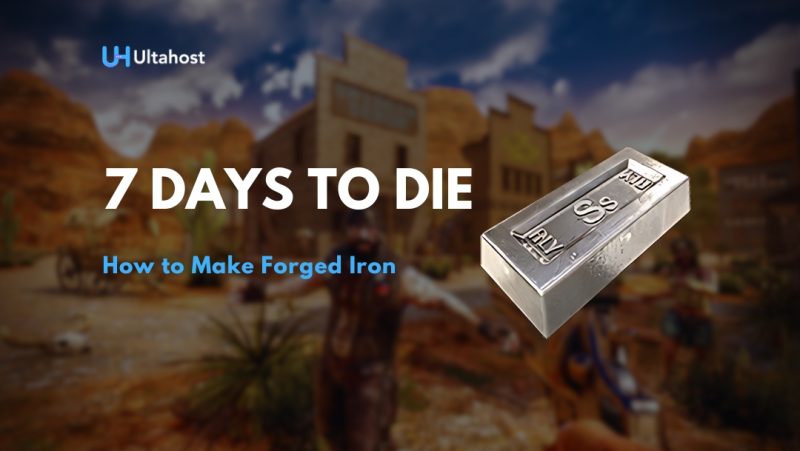In the post apocalyptic world of 7 Days to Die, resources are scarce, and survival depends on your ability to gather and create essential items. Two vital materials in the game are forged iron and forged steel, used extensively in various recipes.
This comprehensive guide teaches you how to obtain and manufacture these precious components through several methods in 7 days to die.
Big fan of survival games? Look into Valheim, loved by tons of players! Get ready for creepy monsters and cool crafting in our helpful guide. Jump into this popular game now!
Forged Iron and Forged Steel – The Basics
Like gold in the real world, forged iron and forged steel are challenging to acquire. However, players have multiple options to collect these valuable materials. Players may discover deposits, loot them from containers, trade with NPC vendors, produce them via furnaces, or salvage them from specific blocks or objects using unique tools. In this article, I’ve compiled step-by-step instructions detailing each method.
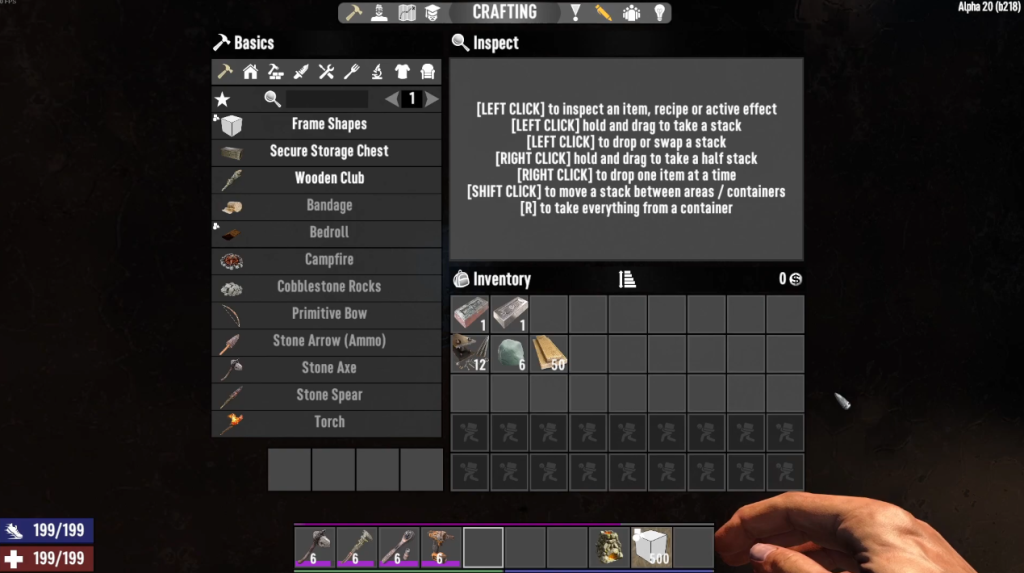
For a seamless 7 days to die gaming experience, Ultahost provides professional server hosting services, handling installation, configuration, and maintenance. Enjoy efficient, secure, and user friendly Best 7 Days to die Server Hosting managed by experts with round the clock support and top notch infrastructure designed specifically for 7 days to die.
Method One: Looting Containers
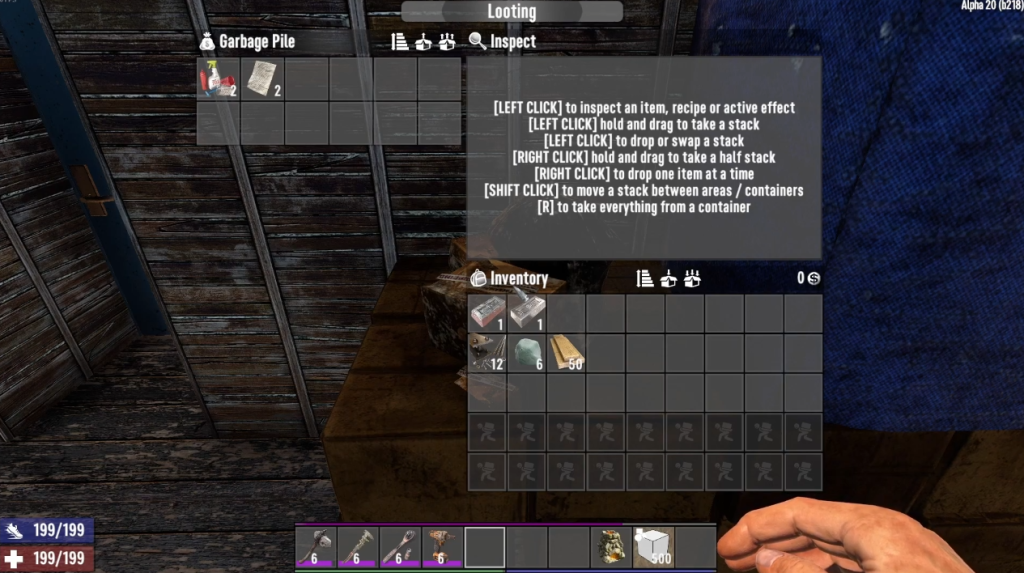
Looting offers limited returns since piles, bags, or boxes seldom contain forged iron or forged steel. Nevertheless, checking every container increases your chances of finding small quantities of either material. Here’s how to examine a container thoroughly:
- Approach the desired object (pile, bag, or box). Ensure it isn’t locked by pressing ‘E’. If successful, proceed to Step 3; otherwise, try unlocking it using lock picks or explosives.
- Once opened, inspect its contents visually. You might locate random items, including raw minerals or weapons made from forged iron or forged steel.
- Collect desirable items by scrolling over them and pressing the appropriate key (‘E’, typically), which transfers ownership to your inventory.
Although rare, occasionally, you could luck upon larger caches hidden away by fellow survivors. Remember, though, that trading with NPC merchants provides greater yields without requiring extensive exploration.
Method Two: Trading With Merchants
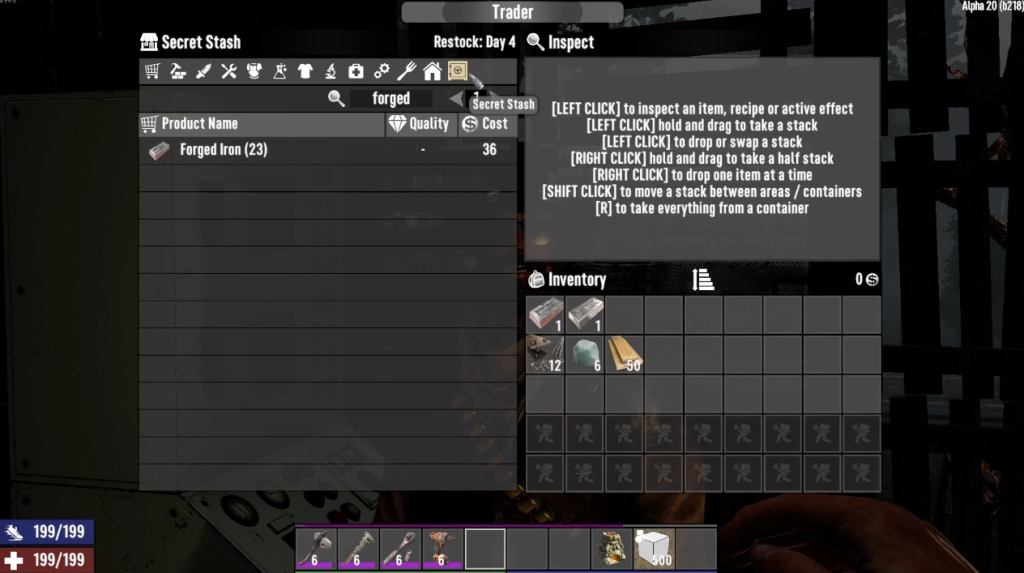
Traders offer substantial amounts of both forged iron and forged steel—although often pricey. Joel, one of the most popular vendors, frequently stocks these goods. To purchase supplies from him or another merchant, follow these steps:
- Locate a vendor by exploring cities, towns, POIs (Points Of Interest), or setting up camp near their established locations. Note that roaming hordes pose risks during nighttime hours.
- Engage conversationally with the merchant via interaction prompts. Browse their stock by scrolling through available items displayed above their heads.
- Acquire necessary funds before committing to purchases. Sell unwanted possessions or scavenge nearby areas for loose change.
- Complete transactions by selecting the desired quantity and confirming the exchange. Confirmation triggers automatic transfer of purchased goods to your inventory.
Remember, prices vary between vendors, so shop around to maximize profits while minimizing expenses. Additionally, consider bartering services or knowledgeable information for discounts or free samples!
Mastering Forged Iron in 7 Days to Die!
Elevate your gameplay with Ultahost’s Server Hosting. Enjoy low latency, smooth performance, and customizable settings. Dominate the apocalypse with our exclusive resources and expert support.
Method Three: Crafting At Furnace
Creating forged iron and forged steel requires access to a furnace and combining raw materials. While simple, producing significant quantities demands abundant resources. Below are the required ingredients and manufacturing process:
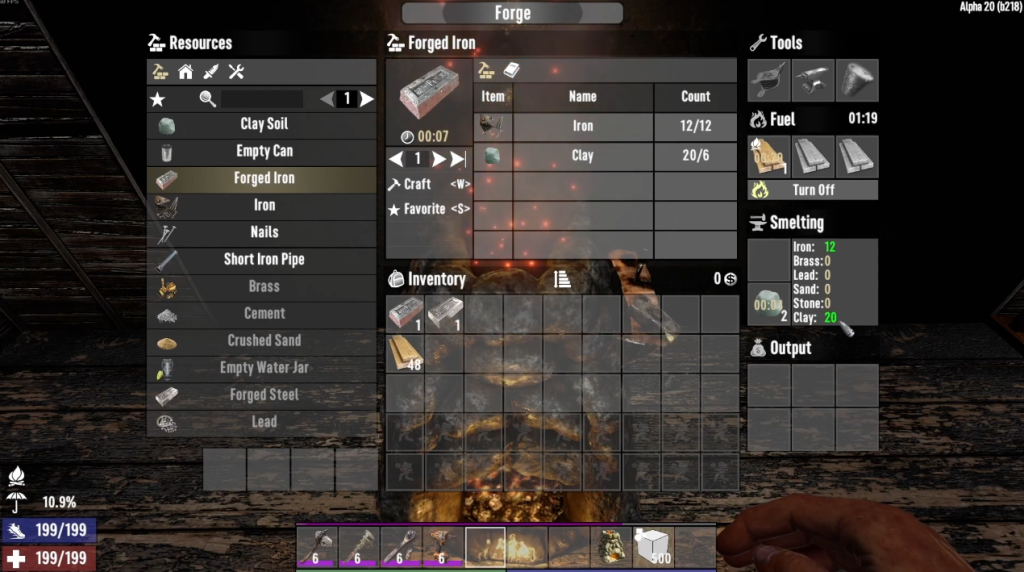
Creating Forged Iron
- Gather twelve units of iron ore and six lumps of clay. Both materials spawn naturally throughout environments and can be mined using basic pickaxes or drills.
- Add fuel source (wood, coal, etc.) to ignite flames. Allow sufficient heating duration for optimal results.
- Transfer collected iron bars and remaining clay back into storage after cooling period concludes.
Additionally, you can check the Top 5 Perks in 7D2D because it will help you in Crafting.
Producing Forged Steel
Producing forged steel follows similar procedures but necessitates additional raw materials and equipment. Crucibles prove crucial in synthesizing this advanced composite. Follow these guidelines:
- Obtain twenty-four pieces of iron ore, ten lumps of clay, and two crucibles. As mentioned previously, mine ores and extract clays from natural sources. Construct crucibles utilizing smithing skills or purchasing prefabricated models from vendors.
- Activate furnace mode and heat crucibles inside flames until red hot.
- Carefully combine melted iron and clay within heated crucibles. Stir vigilantly until homogenous consistency achieved.
- Pour molten mixture onto cool surface allowing solidification. Afterward, retrieve finished product—your newly created forged steel ingot!
While resource-intensive, this approach guarantees consistent supply whenever adequate reserves accumulate. Be cautious regarding storage space management; bulkier objects occupy valuable carrying capacity.
Conclusion
Acquiring forged iron and forged steel represents critical milestones enhancing player capabilities in 7 Days to Die. Fortunately, numerous techniques cater to varying playstyles ensuring progression remains accessible regardless of individual preferences. Whether patiently hunting treasure troves, negotiating deals, painstakingly refining raw substances, or creatively repurposing waste, opportunities abound for persistent adventurers.
As technology advances alongside expanding communities, anticipate further innovations streamlining collection processes. Until then, enjoy mastering current strategies while reveling in self-sufficiency secured through acquired expertise. Happy surviving!
If you enjoy the steps of crafting the forged iron then you’ll love to upgrade your gameplay with Ultahost’s Gaming hosting. Experience seamless hosting for your favorite games and elevate your gaming experience with reliable and high performance servers. Stay tuned for more survival tips and tricks, and keep on surviving.
FAQ
Where can I farm forged iron?
Farm forged iron by mining iron nodes found underground, breaking apart electronics, or salvaging certain blocks with disassembly tools.
Can I convert scrap iron to forged iron?
No, currently, there’s no direct way to convert scrap iron to forged iron. They serve distinct purposes and cannot be interchanged freely.
What’s the best use of forged iron?
Forged iron is versatile, used primarily in constructing durable tools, armor, and strongboxes. It has broad applications depending on personal needs.
Is forged steel better than forged iron?
Yes, generally speaking, forged steel boasts superior properties compared to forged iron. Its increased durability makes it ideal for higher-tier gear production.
Do all scrapable items yield forged iron or forged steel?
Not necessarily. Some scrapped items provide alternative materials like copper, aluminum, or steel instead of forged variants.





